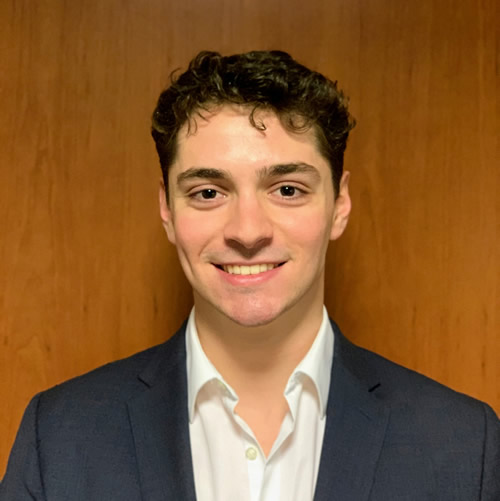SESSION 4: 4:00 PM - 5:30 PM
Panel D: Rising Temperatures & Rising Consequences: Supporting Sustainability amidst the Climate Crisis
C104 Hesburgh Center
Moderator: Sisi Meng
Waste Management Habits of Households in Boquete, Panama and Their Opinions of the Zero-Waste Law in Panama
Amelia Untiedt, Gustavus Adolphus College

Behavioral analysis from payment for ecosystem services: carbon sequestration in Bois Joli, Haiti
Crystal Ngo, The University of the South: Sewanee
Abstract
Payment for ecosystem services has been used as an economic tool to concurrently promote environmental restoration while assisting low-income households to establish financial independence. Payment for carbon sequestration is an approach taken to mitigate climate change because carbon dioxide is captured when trees are planted. A 6-year study in Haiti’s Central Plateau, a region of severe environmental degradation, showed that as farmers received payments for carbon sequestration, tree cover in coffee agroforestry systems increased, suggesting that farmers were motivated by payment for carbon sequestration. However, we surveyed 50 households to determine if their behavioral changes were due to genuine investment in environmental restoration via tree planting, or only for the carbon payments. We also wanted to know if the carbon payments really benefited the Haitian farmers. The semi-formal interviews of Haitian farmers were conducted in Haitian Creole by Haitian agronomists. This qualitative survey provided insights into the perspectives of the local farmers that have been collaborating with the University for the last 6 years. We discovered that 1) an overwhelming majority of the farmers would continue to plant and replant more trees despite the existence of carbon payments in order to generate long term income when they produce goods using their land 2) half of the farmers used carbon payments to pay for items that would normally be purchased by selling charcoal 3) the carbon payments unanimously influence the farmers’ decisions to participate because given the financial means, they are mobilized to act on their care for the environment.

Sustainable Water Distribution
Nicolas Saladino, University of Notre Dame
Abstract
Arcabuco, a small, Tropical-Andean city in central Colombia, is one of hundreds of rural and peri-urban municipalities in Colombia that rely on community-based water distribution systems (referred to in Colombia as aqueducts) to deliver water to its population. The goal of this investigation is to understand the challenges faced by community aqueducts that lack substantial municipal funding or technical support. The study also seeks to provide recommendations for the sustainability of these community-led systems by analyzing the economic, social, and environmental implications of the network and assessing its adaptive capacity. Using the two community-run aqueducts in Arcabuco as case studies, this research will explore common issues such as the cultural norms surrounding water usage, operations and maintenance, billing, and the implementation of new technologies such as water treatment infrastructure. The research methodology included substantial case-study and literature review supplemented by on-site fieldwork in October 2018, January 2019, and January 2020 (planned). Surveys of the community were conducted, as well as interviews of planning and water system officials. Initial findings from community meetings and desk review include the primary need for internal organization and education. Alongside a deliberate application of the existing social, natural, and political capital in the region, the community can effectively transition into a more resilient, infrastructurally robust society.





